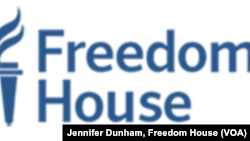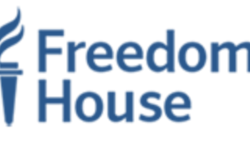An annual report released Wednesday by the independent, Washington-based watchdog organization, Freedom House, gave Zimbabwe a cautious upgrade from a “not free” to a “partly free” status, for some slight improvements in 2015.
“Our findings for Zimbabwe for Freedom in the World 2016 showed that it made some slight improvement in the civil liberties category,” said Jennifer Dunham, Freedom House director of research for Freedom of the World and Freedom of the Press.
Civil liberties is one of two broad categories of measure, the other being political rights.
According to the Freedom House website, civil liberties encompasses Freedom of Expression and Belief; Associational and Organizational Rights, Rule of Law, and Personal Autonomy and Individual Rights.
Zimbabwe, explained Dunham, improved in the area of rule of law and freedom of expression and belief.
With regards to rule and law, Dunham said the judiciary had showed independence and autonomy even in cases involving senior members of the country’s ruling Zanu-PF party.
She referred to a case that was brought before the courts last year, by two Gweru councilors Albert Chirau and Moses Marecha, who challenged their dismissal by Local Government and Public Works and National Housing Minister, Savior Kasukuwere, over allegations of corruption.
“One example of this would be a ruling in September, where the actions of a the minister of local government to dismiss opposition local councilors, was ruled unconstitutional,” explained Dunham. “So since we are seeing a little more independence by the judiciary and some positive rulings, on that front, we did increase Zimbabwe’s civil liberties score and that resulted in a ratings improvement for Zimbabwe from not free to partly free.
Dunham also noted that there were some improvements in the areas of freedom of expression where it concerned freedom of religion, travel and academic freedom.
Despite the improvements, however, Dunham was quick to point out that the rating was not indicative of overall change in the country, saying some areas were still of concern.
“I don’t think the long term trajectory [for Zimbabwe] is necessarily a positive one because even in early 2016 we have seen some continued issues with political violence and the factionalism in the ruling [Zanu-PF] party and I think as the fight for the successor of [President Robert] Mugabe continues, and intensifies, I think it’s just going to get worse,” said Dunham.
On the media front, Dunham said Zimbabwe has not made any change that would move its rating up from the current not free status.
Recent developments indicating an increased clampdown on media and journalists in particular, include the recent arrests of deputy editor Nqaba Matshazi and reporter Xolisani Ncube, both of the private, daily paper, Newsday, and also Sifikile Thabete a representative of the Alpha Media Holdings, which publishes Newsday.
All were accused of writing falsehoods, regarding a story that operatives of the country’s Central Intelligence Organization, were paid bonuses while other civil servants were not.
Another arrest of journalists also involved three reporters from the state-owned Sunday Mail. Editor Mabasa Sasa, investigations editor Brian Chitema and reporter Tinashe Farawo, who were charged with slander over a story they reported, implicating a police officer in the poisoning of elephants using cyanide.
To these incidents and others, Dunham said, “On the scores for Zimbabwe in those particular indicators that would apply, for media for example, they already do quite badly so it couldn’t really decline anymore.”
With activist Itai Dzamara still missing from his alleged abduction in March 2015, and other reports of violence, Dunham said the upgrade from not free to partly free, does not mean Freedom House is turning a blind eye to the ongoing violations in Zimbabwe.
“We are not taking our eyes off Zimbabwe and this is by no means an endorsement of the government,” Dunham said.
Dunham said the methodology used to arrive to the findings of the annual report, is solid and reflective of the reality on the ground.
She said her organization has a full team of experts both in Zimbabwe and Washington, who together, come to a unanimous conclusion of the final report.
Details of the methodology used and other information about the research are available on the Freedom House website:
https://freedomhouse.org/report/freedom-world-2012/methodology






